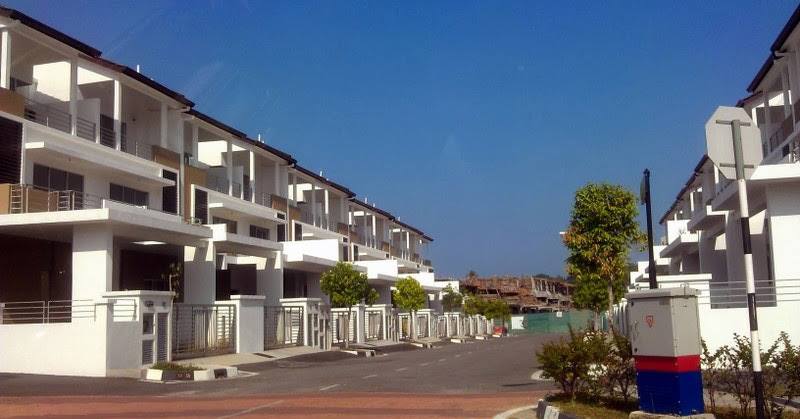KUALA LUMPUR, March 27 — Multinational corporations in Penang have been forced to house their foreign workers in exclusive gated and guarded communities in the state, much to the chagrin of the locals there.
In a report by English daily The Star, the MNCs apparently had no choice but to turn these exclusive homes into hostels with up to 30 foreign workers each due to the shortage of suitable quarters in the land-scarce island.
The MNCs had also piled the workers up into these homes to spread the steep RM2,000 rental cost for an unfurnished unit.
Apparently the MNCs are bound by high standards of operating ethics such as the Responsible Business Alliance (RBA) which is a global coalition of industries committed to upholding high standards of corporate social responsibility (CSR) — including providing quality housing for workers.
However, the image becomes jarring when 30 workers share a triple storey home while their upper-middle-class neighbours have luxury cars parked in the compound.
Sunway Cassia Residents Association chairman Ibrahim Ramli reportedly said that the height of the problem happened when 20 out of the 170 houses in his neighbourhood were converted into hostels.
The problem began mushrooming at the end of 2016, seeing that the gated and guarded community of Batu Maung is only around 3 km away from the Bayan Lepas industrial area.
“At one time there were over 600 foreign workers living here. We have a beautiful nature park and exclusive picnic area. When they were celebrating some kind of festival they would take over our park and hold loud concerts and parties,” he reportedly complained.
He also complained of a fight between two drunken male workers which spilt onto the streets, forcing police intervention.
Another problem that the residents faced was factory buses picking up the workers in the morning.
“If one bus holds around 30 workers, imagine how many buses would come for 600? The buses arrive before the sun comes up and the noise of the buses and hundreds of workers walking out is horrible,” he reportedly said.
The noise was not the only issue as the workers’ unwanted presence also led to property devaluation.
The property used to be valued at RM1.2 million but some of the homeowners have begun selling at RM800,000.
Unable to deal with the workers anymore, the residents of Sunway Cassia had lodged a report with Penang Island City Council.
Last December it took action against eight house owners under Section 28(2)(a) of the Town and Country Planning Act 1976 for allowing their properties to be converted to worker hostels without approval.
Ibrahim had reportedly said since the government’s intervention the number of hostels had dropped down to two and he hoped that life will be back to normal.
Penang Mayor Datuk Yew Tung Seang said companies can rent homes for their workers but it must follow the law to avoid becoming a nuisance to neighbours, which is an offence.
Before putting a high number of workers in a unit, the companies must have planning permission first because it already becomes a hostel.
State Housing, Town and Country Planning, and Local Government Committee chairman Jagdeep Singh Deo said Penang had also approved the construction of two foreign worker residential complexes in Batu Maung and Gertak Sanggul capable of accommodating 12,000 workers.





















